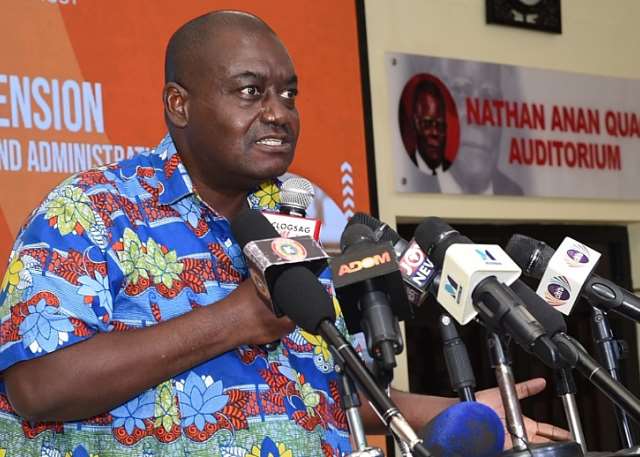The Civil and Local Government Staff Association, Ghana (CLOGSAG), a vital body representing civil servants in Ghana, suspended its nationwide strike on March 28, 2025. This decision, reached during an emergency meeting of the National Executive Council (NEC), marked a significant turning point in a labor dispute that had disrupted public services across the country for several weeks. The strike, which commenced on February 20, 2025, stemmed from CLOGSAG’s dissatisfaction with the appointment of Samuel Adom Botchway as the Births and Deaths Registrar. CLOGSAG contended that the position, by its nature, should be held by a career civil servant, ensuring the neutrality and professionalism of the office. They expressed concerns over Botchway’s alleged political affiliation with the ruling National Democratic Congress (NDC), arguing that such an appointment threatened the impartiality of the civil service and risked politicizing a critical public function.
The suspension of the strike signaled a willingness on CLOGSAG’s part to pursue a resolution through dialogue and negotiation rather than continued industrial action. The official statement announcing the suspension, issued by Executive Secretary Isaac Bampoe Addo, emphasized the association’s commitment to engaging with relevant authorities to address the underlying issues that led to the strike. The statement also urged all members of the Civil Service and the Local Government Service to return to work on Wednesday, April 2, 2025, effectively ending the period of disruption to public services. This resumption of work indicated a temporary truce while negotiations continued, offering a window of opportunity to find a mutually acceptable solution to the impasse.
CLOGSAG’s primary concern revolved around the principle of neutrality within the civil service. Their argument rested on the belief that appointing individuals with overt political affiliations to sensitive positions could compromise the integrity and impartiality of the civil service. The Births and Deaths Registry, responsible for recording vital statistics related to births and deaths, plays a crucial role in national planning and development. CLOGSAG argued that politicizing such an office could lead to biased decision-making, potentially affecting the accuracy and reliability of vital statistics and ultimately undermining the public’s trust in the institution. The association viewed the appointment of Botchway as a potential precedent that could erode the principles of meritocracy and professionalism within the civil service.
The appointment of Samuel Adom Botchway to the position of Births and Deaths Registrar ignited a debate about the appropriate criteria for appointments to key public offices. CLOGSAG’s stance highlighted the potential tension between political appointments and the need for an impartial civil service. Their argument centered on the importance of preserving the integrity and neutrality of the civil service, which serves as the backbone of government administration. They viewed political appointments to such positions as a potential threat to the professionalism and effectiveness of the civil service. By taking industrial action, CLOGSAG sought to protect the principles of meritocracy and neutrality within the public sector, arguing that appointments should be based on qualifications and experience rather than political affiliations.
The suspension of the strike by CLOGSAG offered a chance for all stakeholders to engage in constructive dialogue and seek a resolution that addressed the concerns raised by the association. The return to work by civil servants allowed for the resumption of essential public services and provided a period of stability during which negotiations could take place. The outcome of these discussions would have significant implications for the future of the civil service in Ghana and the relationship between the government and its employees. A successful resolution would require a commitment from all parties to find common ground and establish clear guidelines for future appointments to ensure the continued neutrality and professionalism of the civil service.
This incident underscored the crucial role played by civil society organizations like CLOGSAG in advocating for the rights of workers and upholding principles of good governance. By taking a stand against what they perceived as an inappropriate political appointment, CLOGSAG highlighted the importance of maintaining an independent and impartial civil service. The willingness to engage in dialogue following the suspension of the strike demonstrated a commitment to finding a lasting solution that would strengthen the civil service and ensure its continued effectiveness in serving the public interest. The outcome of this dispute would serve as an important precedent for future appointments and the ongoing relationship between the government and the civil service in Ghana.














